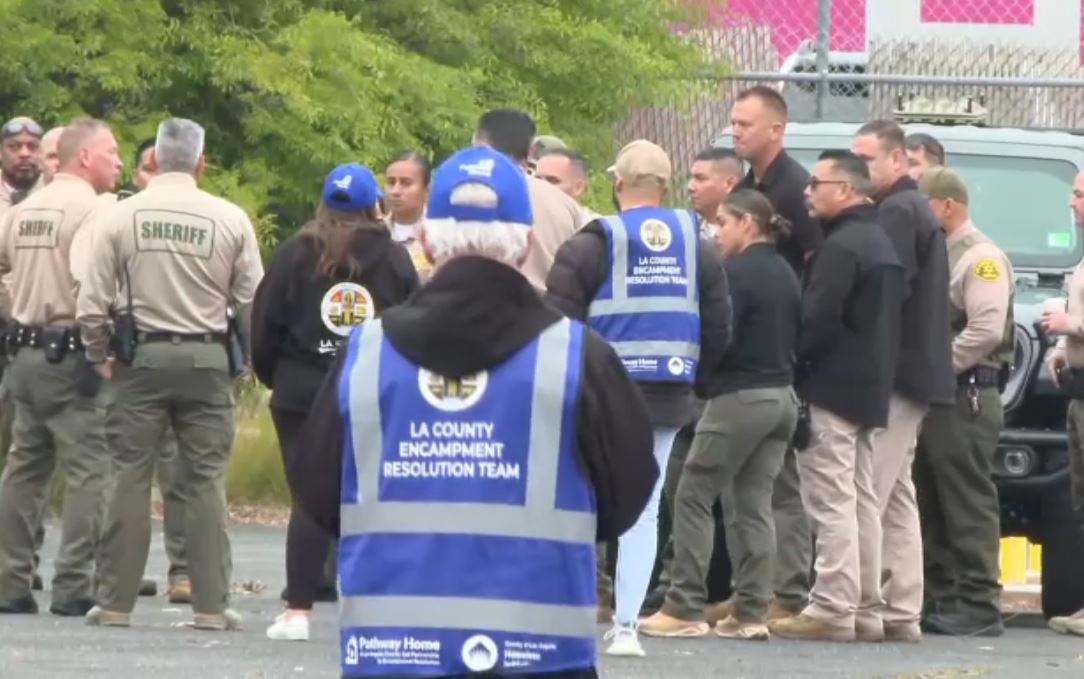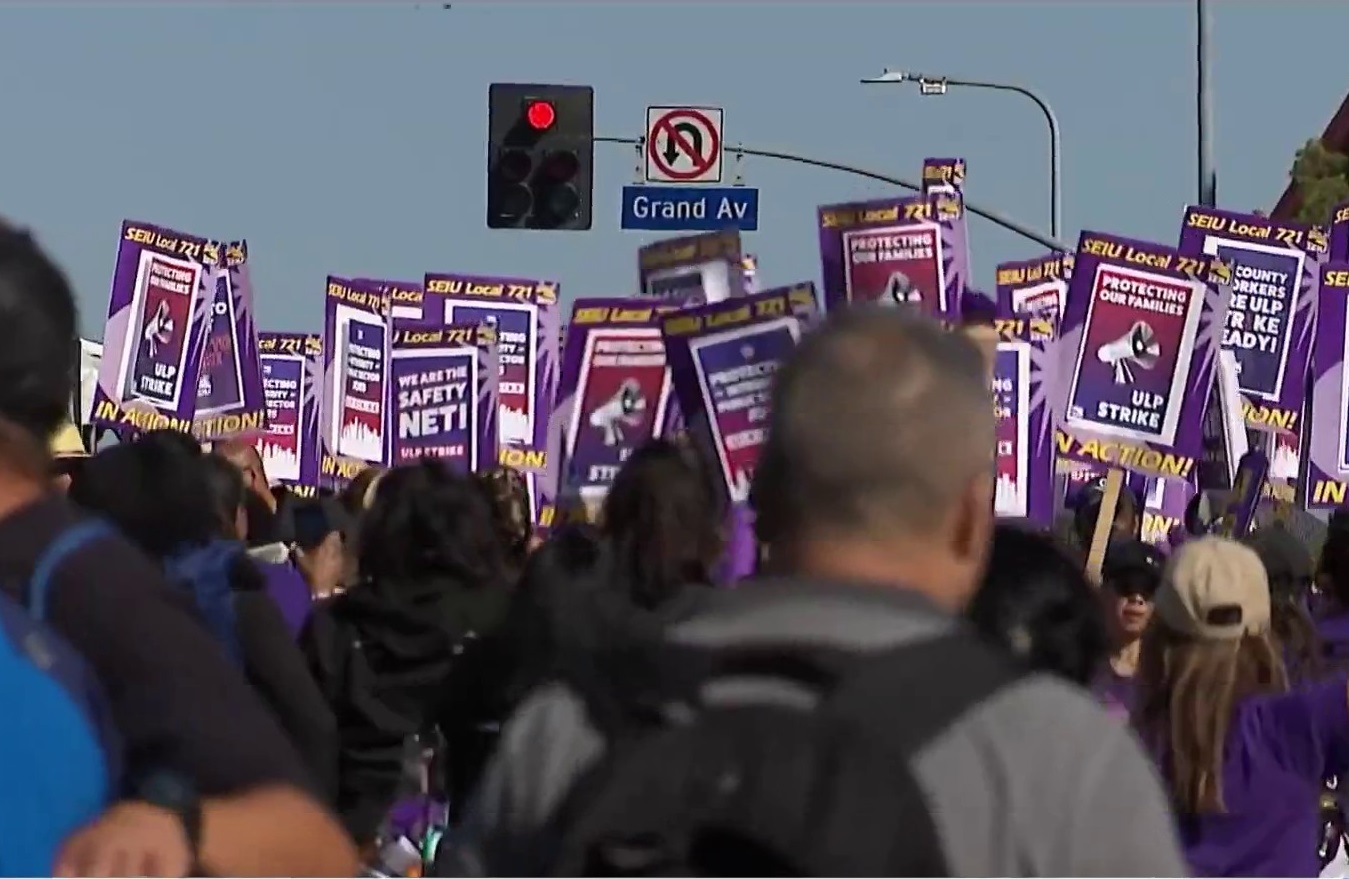The Los Angeles Fire Department has two months to shape up or ship out their interactive computer program that was designed to help with medical emergencies with which they are accused of not following protocol. Patrick Healy reports from downtown LA for NBC4 News at 6 p.m. Tuesday, March 4, 2014.
Efforts to speed response to emergency medical calls in Los Angeles have run into controversy and an ultimatum that could leave the city's fire department scrambling for an interim solution.
Without a resolution in the next two months, the department may no longer be permitted to employ the computer-assisted protocol that, with various revisions, has aided dispatchers for a quarter century, warned the Utah-based provider, Priority Dispatch Corp. The Los Angeles Fire Department has previously announced it is developing its own protocol, with the intention of enabling responders to be dispatched more quickly than under Priority's system.
LAFD's system, however, is not expected to be ready until next year, said medical director Marc Eckstein, MD.
It is the latest challenge for a department that has come under increasing scrutiny. On Monday, city officials received an outside consultant's report calling for sweeping reforms. On Tuesday, the civilian commission that oversees the department ordered an audit of the screening process for academy applicants.
- Download: NBCLA News App
For emergency medical dispatches -- now 80 percent of the calls to the fire department -- Emergency 911 call-takers work with a computer program known as a Medical Priority Dispatch System (MPDS). It provides the dispatcher with a written script that is revised as additional information is received.
For the protocol to work, dispatchers must stick to the script, according to Jeff Clawson, MD, Priority's President and Medical Director. Los Angeles Fire dispatchers don't always, Dr. Clawson asserted.
Local
Get Los Angeles's latest local news on crime, entertainment, weather, schools, cost of living and more. Here's your go-to source for today's LA news.
"It has come to our attention that the LAFD... is not using the MPDS protocols appropriately, misapplying the protocols, or not using them at all," wrote Dr. Clawson in a Monday letter to interim Los Angeles Fire Chief James Featherstone.
The letter went on to warn that in the absence of "appropriate steps... we will reluctantly cancel the Department's MPDS license agreement."
At Tuesday's meeting of the Fire Commission, Clawson associate Fred Hurtado said the department has two months to reach compliance and set a deadline of May 3. After the fire commission meeting, Dr. Eckstein insisted all 72 personnel in the dispatch chain of command have been instructed they must "adhere to the existing protocol" during the transition.
Eckstein noted that LAFD has an agreement with Priority that extends to December, and said he expects Priority will "honor the contract."
Clawson was unyielding in a dispute verging on brinkmanship between two medical colleagues who have known each other and worked collaboratively for years.
"If they don't fix it in 60 days, we're not going to aid and abet the city to not care for its citizens correctly, and it's coming out," Clawson warned.
Clawson disputed Eckstein implication that the MPDS does not enable some emergencies to be dispatched quickly enough, saying the problem is with dispatchers not following script, and also blaming LAFD's aging computer system, which sometimes goes down. The MPDS currently is used across America and in 42 other countries, and its revision being released this spring will enable some emergencies to be dispatched in as little as four seconds, Clawson said. He rejected the notion that the ultimatum is a bargaining tactic to pressure Los Angeles to use the revised MPDS, rather than developing its own system.
Clawson's letter also was sent to Mayor Eric Garcetti, currently in Mexico on an official visit, and to members of the city council, including Public Safety Committee Chairman Mitchell Englander. The council member expressed hope an agreement can be reached before the May deadline.
"We can certainly work with them," Englander said.
Unlike many fire departments that employ civilian dispatchers, the Los Angeles department assigns sworn personnel, firefighters or paramedics. Clawson prefers civilian dispatchers, saying they tend to be less likely to deviate from the script than medics tempted to draw on their field experience.
In that respect, Clawson found an ally in the 80 page analysis of LAFD the city commissioned from the PA Consulting firm. One of its recommendations is for the department to switch to civilian dispatchers, so more sworn personnel can be placed in the field.
The United Firefighters of Los Angeles City opposes civilian dispatchers, and Englander expects that will be a difficult issue to resolve. The union also opposes splitting up two paramedic teams, taking one from a rescue ambulance for re-assignment to an fire engine, known as "one plus one."
Eckstein favors that option.
Councilman Englander also endorses other report recommendations.
"We've got firefighters analyzing data," Englander said. "Firefighters should be doing what they're trained to do," and have civilians handle the data analysis.
The LAFD is also dealing with revelations about its screening of applicants for the fire academy.
Mayor Garcetti has expressed disappointment that the first post-hiring freeze class of 70 includes only one woman and is 60 percent white. At one stage of the screening, the department rejected thousands of online applications that were not received within one minute of the opening submittal time, the Los Angeles Times reported.
It also found that 24 per cent of the accepted recruits are related to current or former Los Angeles firefighters. Tuesday, after the fire commission ordered an audit, interim Chief Featherstone said he would examine the screening process, and indicated there would be changes for later classes. The inclusion of simplistic questions in the initial written test -- such as, "How many days are in a year?" -- was skewered in a Times column by Steve Lopez. Featherstone said he has not seen the written test since he took his three decades ago, but will now take a look.



